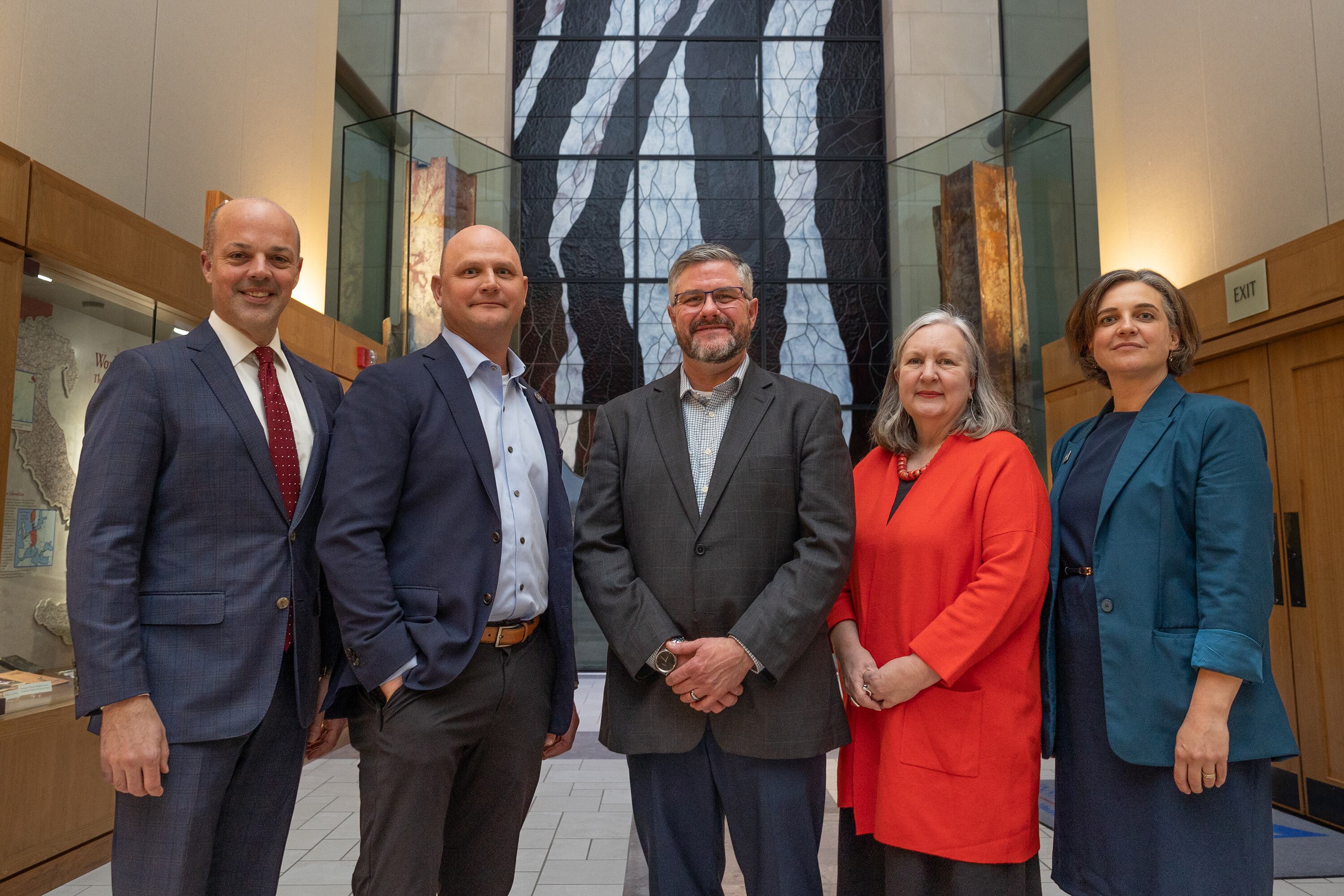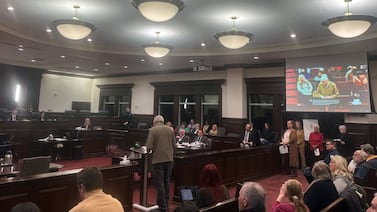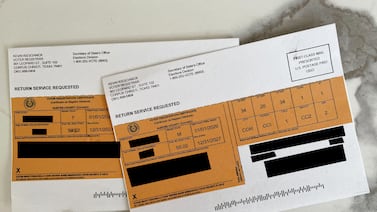Votebeat is a nonprofit news organization reporting on voting access and election administration across the U.S. A version of this post was originally distributed in Votebeat’s free weekly newsletter. Sign up to get future editions, including the latest reporting from Votebeat bureaus and curated news from other publications, delivered to your inbox every Saturday.
We write to you this week with news of a promising new group of experts examining why “funding election systems is so difficult” in contrast with other government services, which don’t receive nearly the same pushback and hesitancy to commit regular funding.
Election funding (or, the lack thereof) is a critical problem in the United States, and one Votebeat talks about a lot. There have been similar efforts — like the Presidential Commission on Election Administration during the Obama administration, for example — but these have largely centered on best practices in elections rather than the foundational issue of resources.
This initiative is a collaboration between the Robert J. Dole Institute of Politics and the Edward M. Kennedy Institute for the United States Senate, led by Tammy Patrick — the chief executive officer for programs at the National Association of Election Officials.
Patrick pointed out that both institutes are named for politicians who “were well-known for their ability to get to the heart of the matter in a bipartisan way — by presenting a perspective that would be amenable and civil.” That seemed to lend itself to taking on election funding, which presents fewer obvious partisan roadblocks than voting policies such as vote by mail.
“For all of the challenges we have in the election administration field, so much of it comes back to the question of sufficient funding or the cadence of that funding,” said Patrick.
This, from a local elections official at the working group’s kick off event, explains it all: “We always joke around election equipment,” said Jamie Doss, the clerk in Saline County, Kansas. “If we could paint [election equipment] in Caterpillar yellow, and it be the same color as a motor grader…because most of our funding goes for roads.”
The working group includes names that have appeared before in this newsletter: Mitchell Brown, Auburn University; Paul Gronke and Paul Mason, Reed College; Kathleen Hale, Auburn University; Martha Kropf, University of North Carolina; Zach Mohr, University of Kansas; Rachel Orey and Matt Weil, Bipartisan Policy Center; and Charles Stewart, Massachusetts Institute of Technology.
In a phone call, Audrey Coleman, director of the Robert J. Dole Institute of Politics, said that the two host institutes see themselves as “the conduit for the conversation” between academics and local election officials. Local elections officials, she said, will be consulted throughout the process to ensure that the final product is reflective of their needs.
The working group’s inaugural event took place in February in Kansas at the Dole Institute, and kicked off with Kansas Secretary of State Scott Schwab in conversation with Douglas County, Kansas, Election Officer Jamie Shew. The following day honed in on research and case studies in election funding and resource allocation — truly an election nerd’s holiday.
In Patrick’s mind, the project will be a success if their final report outlines the varying models for funding, and establishes some understanding of which is most sustainable and effective. Surprisingly, there’s little understanding of the most effective funding models for elections, and not much clarity on which funding models are most common.
Kansas — many of whose elections officials spoke at or were present for the event — presents an interesting example: The state has no part in funding local elections. Outside of irregular grants, counties bear those costs. But, across the country, funding models differ wildly. Sometimes states and municipalities reimburse the county on a per-voter basis for costs of administering elections, sometimes one does but not the other. Sometimes candidate filing fees are applied towards the cost of administering elections, and sometimes no filing fees are charged.
Patrick would also like the report to dispel certain myths the public has about who funds elections — like, for example, that the federal government reimburses states for running the presidential election or that counties dedicate a large portion of their budgets to the administration of elections. A few years ago, Auburn University political scientists conducted a study of NAEO members to see what portion of the county budget elections took up. The number came to 0.54 percent.
“So, one half of one percent!” said Patrick. “That’s insane.”
Jessica Huseman is Votebeat’s editorial director and is based in Dallas. Contact Jessica at jhuseman@votebeat.org.



